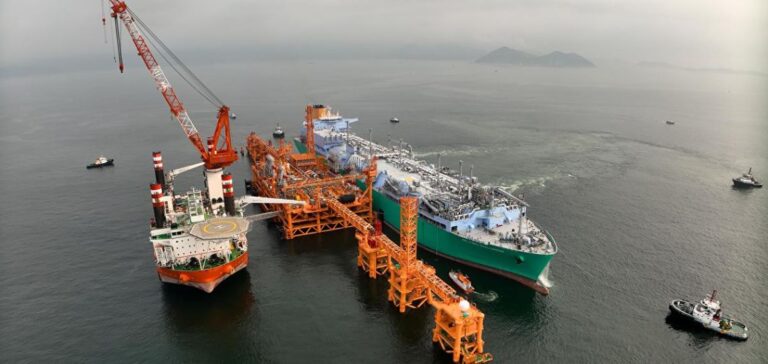The Buzios oil field, located in the Santos Basin off the coast of Brazil, is the largest deepwater field in the pre-salt zone. It reaches a water depth of between 1,900 and 2,200 meters. CNOOC Limited has announced the start of production for the Buzios7 project, which represents the sixth development phase of the reservoir.
A large-scale offshore infrastructure
The project is based on a subsea production system coupled with a floating production, storage, and offloading unit (FPSO). Fifteen development wells are planned to go into production, including seven oil-producing wells, six water and gas injectors, one convertible well, and an additional gas injector. This new phase of operation strengthens the ambition to increase Buzios’ production to one million barrels of crude oil per day in the second half of 2025.
One of the largest FPSOs in the world
The FPSO dedicated to the Buzios7 project is among the largest of its kind. Converted in China in July 2024 and transported to the site in October of the same year, it has a production capacity of up to 225,000 barrels of crude oil per day. It is also designed to process 12 million cubic meters of natural gas daily and store up to 1.4 million barrels.
A project led by a consortium
The exploitation of the Buzios Shared Reservoir is carried out by a consortium in which Petrobras, as the operator, holds an 88.99% stake. CNOOC Petroleum Brasil Ltda, a subsidiary of CNOOC Limited, owns a 7.34% share, while CNODC Brasil Petróleo e Gás Ltda holds 3.67%.






















